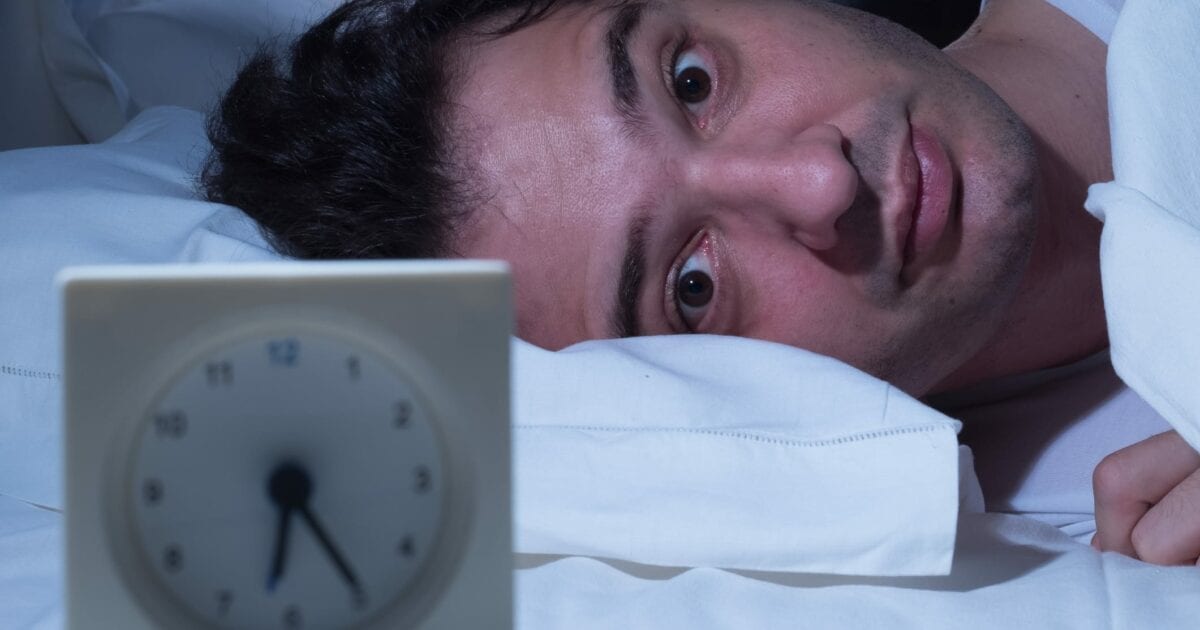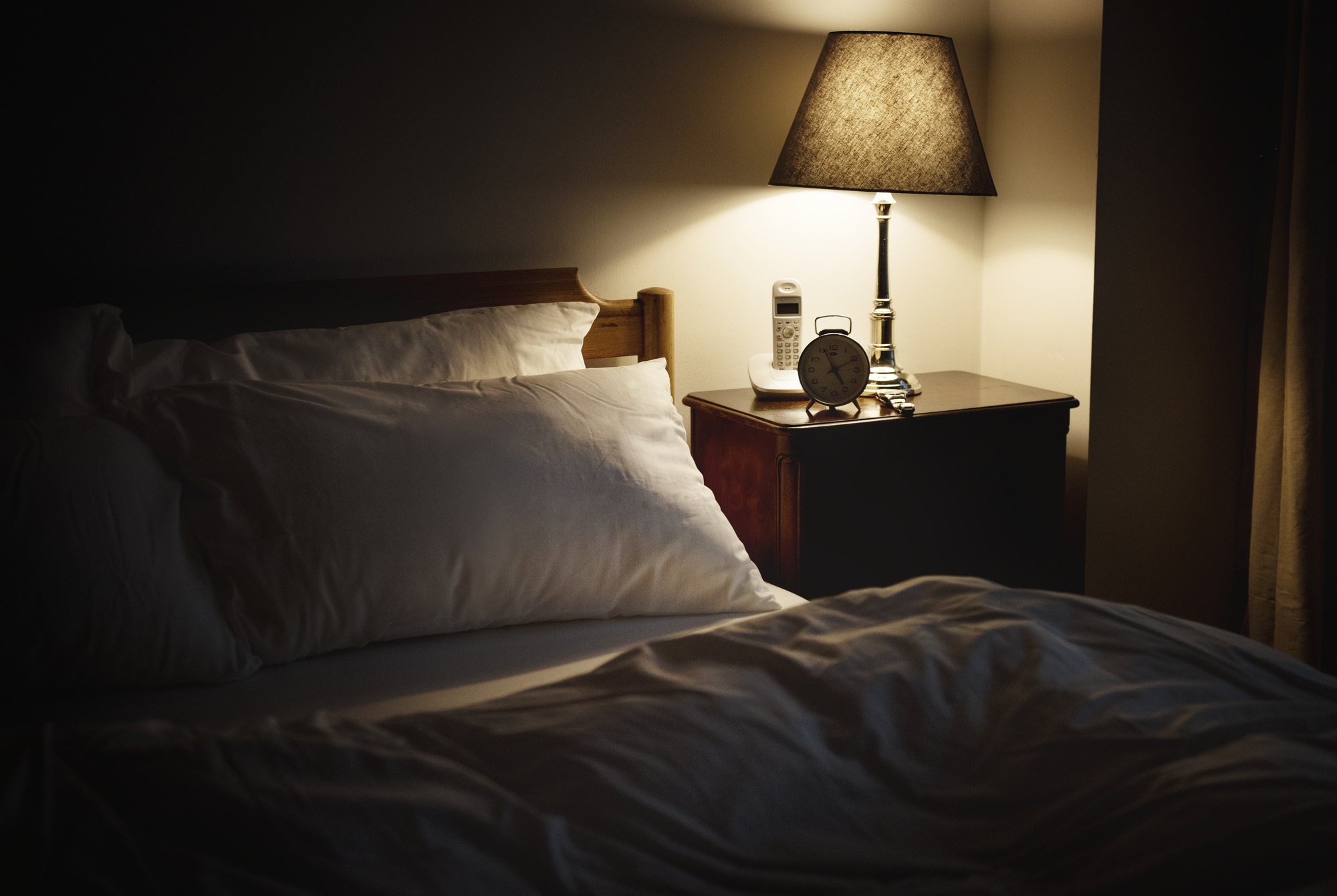
Frustration From Lack of Sleep
Experiencing complete wakefulness while trying to get good rest occasionally is common for many individuals.
Poor quality sleep occurs somewhat frequently, as millennials recently reported having a lack of sleep that made them feel groggy or with a mental fog when they woke up.
So what is it that makes us feel irritable and lethargic even when we try to get 8 hours of sleep?
Certain habits may be sabotaging the quality of your sleep, despite the amount of hours you dedicate each night towards rest. These habits can be narrowed down to the place(s) you sleep, the times you go to sleep, and the activities you do right before you rest.
Keep reading if you want to find out how to get a good night’s sleep and trying to avoid insomnia that’ll keep you up for hours.

How To Get Better Quality Sleep
As mentioned before, your quality of sleep is basically broken down into 3 areas where they matter the most:
Where You Sleep:
The key words with this is cool, dark, and quiet. The temperature of your room should be 60 to 69 degrees and no warmer than 72 degrees. The reason why is because our bodies have thermoregulators that produce sweat when we’re hot to cool us off.
If the room is too humid then the sweat has nowhere to go evaporate since the air is already saturated, so you’ll wake up since you’ll be covered in sweat. If the room is too cold, you’ll start shivering in your sleep which will disturb your sleep too.
Next, your mattress. If it’s older than 10 years throw it out. Even the most expensive, well designed mattresses start to sag and sink in the middle after about the 7 year point.
Pillows also need to be changed out once a year for the same reason.
Lastly, our minds makes psychological connections with the places we spend our time in. So if you use your bed for doing work or anything else beside sex or sleep you’ll have difficulty falling asleep.
When You Sleep:
Timing of when you sleep comes down to consistency. If you find yourself not falling to sleep when you know it’s late, it’s probably because your body just isn’t ready yet.
People who travel a lot know this as changing time zones often messes with your body’s circadian rhythm and makes you groggy because daylight affects when you wake up.
Sleeping at inconsistent times every night does the same thing because your body is used to being up and awake at a certain part of the day and at rest the other part of the day.
To avoid not falling asleep when you know you should, try to go to sleep around the same time every night.
Habits You Have Before You Sleep:
This is the biggest one since most of the habits people have before sleep aren’t good ones.
The worst one is the habit of using technology right before bed. Since technology is all around us now, we’re used to using devices throughout the day, even up until we’re about to check out and go to bed.
Research has found that this isn’t the best thing for us since technology devices emit a “blue” light that reaches the back of our retinas and prevent us from going to sleep.
The reason why is that blue light lowers the amount of melatonin to be produced that’s vital for us to go to sleep, which is why you feel “awake” when you use your cell phone or computer before bed.
Certain foods and drugs stimulate you to stay up at night rather than others. The most obvious one is caffeine, which should be avoided at least 6 hours before sleep.
Alcohol is thought of by some to be good to fall asleep since it’s classified as a depressant by the FDA. However, alcohol is actually one of the worse things to drink before sleep because of what it does to your quality of sleep.
Your sleep has REM cycles (rapid eye movement) that’s the most important part of sleep since it’s the deepest cycle of sleep and where our memories are sorted and organized.
Drinking alcohol at night makes you fall asleep at first, but alcohol causes the hormone cortisol to be released about 2-3 hours into your sleep which wakes you up. This interrupts your REM sleep and you never feel truly rested by time the night’s over.
Another bad habit before sleep is eating huge meals right before bed, which I’m guilty of myself. Bodybuilders usually get into this habit because they’re trying to fit their calories and/or macros in the day, which is harder when you need a lot of them.
You should still try to avoid this as large meals at night lead to stomach indigestion, which will also prevent you from falling asleep.
The Wrap Up
The environment, sleep scheduling, and the habits that you have right before sleep are all important when it comes to the rest quality. To improve sleep quality, it would be wise to review areas of neglect that may be assessed by yourself or a sleep specialist. If all else fails and you still have bouts of insomnia, a sleep therapist may be able to isolate what could be causing your issue.
What else do you want to know?
Why Sleep Is Important for Training
How Alcohol Affects Your Sleep
Why We Should Be Aiming For 8 Hours of Sleep
